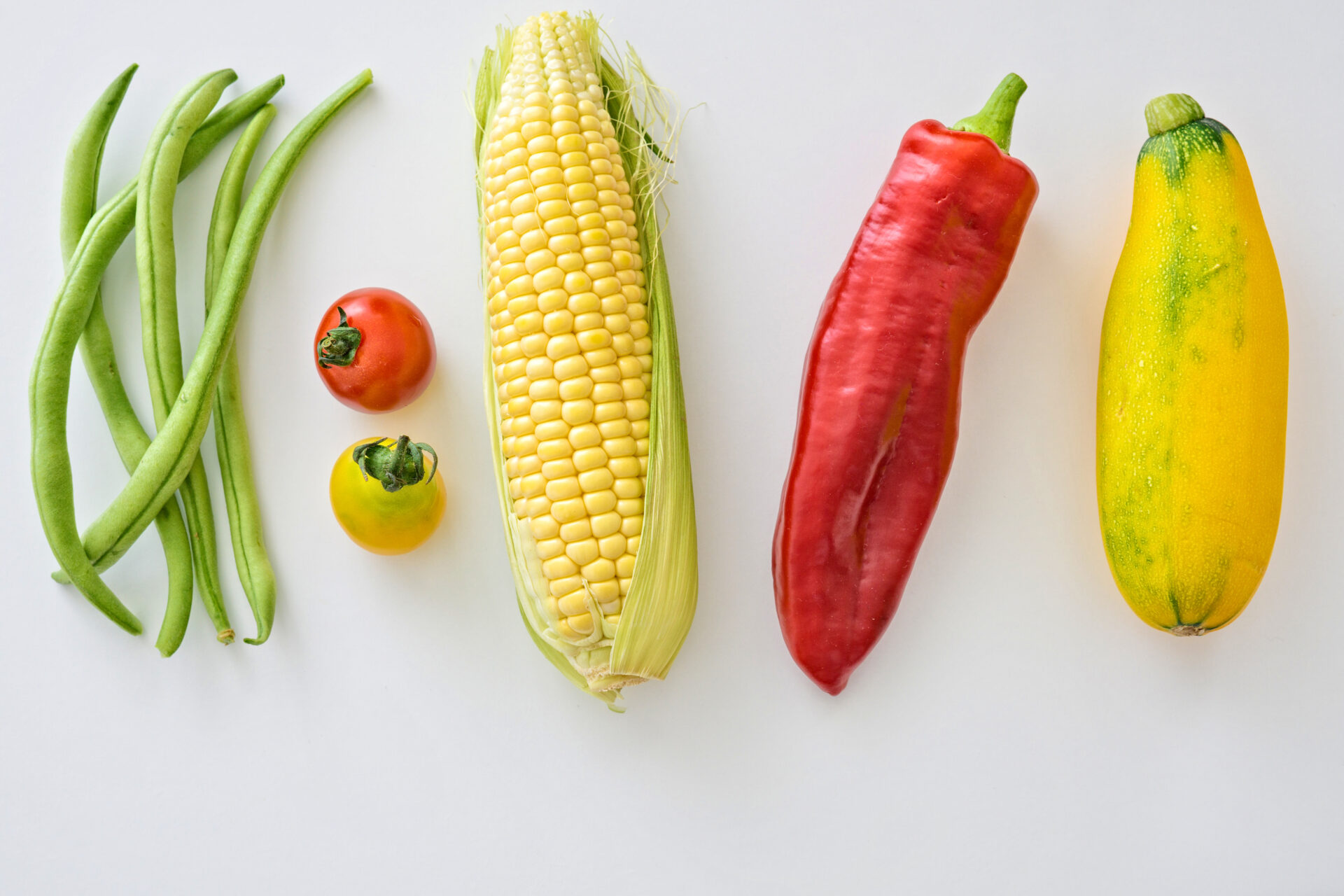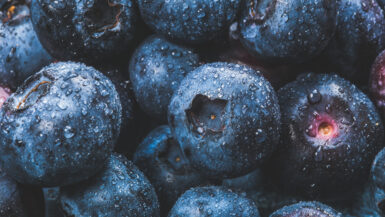Artificial preservatives have become ubiquitous in our food supply. They are added to keep food fresh, extend shelf life, and prevent spoilage. However, recent studies have shown that these preservatives can have negative effects on our health. They have been linked to numerous health issues such as allergies, asthma, and even cancer. In this article, we will explore the dangers of artificial preservatives and how they can affect our health. We will also look at some natural alternatives that can be used instead of these preservatives to keep our food safe and fresh.
What are artificial preservatives and why are they used in food?
Artificial preservatives are synthetic substances added to food products to extend their shelf life and prevent the growth of bacteria, mold, and yeast. They are used to preserve the freshness and appearance of foods, prevent spoilage, and reduce the risk of foodborne illnesses. Artificial preservatives are widely used in processed foods such as baked goods, snacks, cereals, canned fruits and vegetables, and meat products.
The use of artificial preservatives in food has become increasingly popular over the years as food manufacturers seek ways to increase the shelf life of their products and reduce waste. Without these preservatives, many foods would spoil quickly and become unsafe for consumption. However, the use of artificial preservatives has also raised concerns about their potential health risks and impact on the environment.
While some artificial preservatives are considered safe for consumption in small amounts, others have been linked to a range of health problems, including allergies, asthma, and cancer. As a result, many consumers are now seeking out preservative-free alternatives or products that use natural preservatives instead.
The health risks associated with consuming artificial preservatives
While artificial preservatives are added to food products to improve their shelf life and prevent spoilage, their consumption has been linked to several health risks. Some of the most commonly used artificial preservatives, such as BHA, BHT, and TBHQ, have been identified as potentially harmful to human health.
Studies have shown that these preservatives can cause allergic reactions, skin irritations, and respiratory problems. In addition, they have been linked to cancer and other chronic health conditions, including asthma, liver and kidney damage, and developmental issues in children.
Sodium nitrate and nitrite, which are commonly used in processed meats such as hot dogs, bacon, and deli meats, have also been linked to an increased risk of cancer. These preservatives can form cancer-causing compounds in the body when consumed in large amounts.
Consuming foods that contain artificial preservatives on a regular basis can have a cumulative effect on the body, leading to long-term health problems. Therefore, it is important to limit your intake of these preservatives and choose natural alternatives whenever possible.
Overall, the health risks associated with consuming artificial preservatives are a cause for concern. It is important to read food labels carefully and choose products that are free from harmful preservatives. By doing so, you can reduce your risk of developing chronic health conditions and ensure that you are consuming foods that are safe and healthy for you and your family.
The impact of artificial preservatives on the environment
The use of artificial preservatives in food products not only affects human health but also has a significant impact on the environment. These preservatives can contribute to air and water pollution, as well as the depletion of natural resources.
The production of artificial preservatives requires large amounts of energy and resources, including water and fossil fuels. This can lead to increased greenhouse gas emissions, which contribute to climate change and other environmental problems.
In addition, the disposal of food products that contain artificial preservatives can also have a negative impact on the environment. When these products are thrown away, they can end up in landfills, where they can release harmful chemicals into the soil and groundwater.
Furthermore, the use of artificial preservatives can also have an impact on biodiversity. The chemicals used in these preservatives can harm wildlife and disrupt ecosystems, leading to a decline in species populations.
Overall, the impact of artificial preservatives on the environment is a cause for concern. By reducing our consumption of these preservatives and choosing natural alternatives, we can help to reduce our carbon footprint and protect the environment.
The most common artificial preservatives found in food and their potential dangers
There are many different types of artificial preservatives used in food products, each with its own potential health risks. Some of the most commonly used artificial preservatives include:
BHA and BHT
BHA (butylated hydroxyanisole) and BHT (butylated hydroxytoluene) are synthetic antioxidants that are commonly used to prevent the oxidation of fats and oils in processed foods. However, both of these preservatives have been linked to cancer and other health problems. Studies have shown that BHA and BHT can cause liver and kidney damage, as well as developmental issues in children.
Sodium Nitrate and Nitrite
Sodium nitrate and nitrite are commonly used in processed meats to preserve their color and prevent the growth of bacteria. However, these preservatives have been linked to an increased risk of cancer, particularly colorectal cancer. When consumed in large amounts, sodium nitrate and nitrite can form cancer-causing compounds in the body.
TBHQ
TBHQ (tert-butylhydroquinone) is a synthetic antioxidant that is commonly used to extend the shelf life of processed foods. However, consuming large amounts of TBHQ has been linked to a range of health problems, including nausea, vomiting, and ringing in the ears. In addition, TBHQ has been shown to cause damage to DNA and impair the immune system.
Propyl Gallate
Propyl gallate is a synthetic preservative that is commonly used in processed foods to prevent the oxidation of fats and oils. However, this preservative has been linked to a range of health problems, including allergic reactions, asthma, and cancer.
Overall, the most common artificial preservatives found in food products can have a range of potential dangers. It is important to read food labels carefully and choose products that are free from harmful preservatives. By doing so, you can reduce your risk of developing chronic health conditions and ensure that you are consuming foods that are safe and healthy for you and your family.
How to identify and avoid foods that contain artificial preservatives
Identifying and avoiding foods that contain artificial preservatives can be challenging, as these preservatives are often added to processed foods and can be listed under different names on food labels. However, there are some steps you can take to reduce your intake of these preservatives:
Read food labels carefully
One of the best ways to identify foods that contain artificial preservatives is to read food labels carefully. Look for ingredients such as sodium nitrate, sodium benzoate, BHA, BHT, and TBHQ, which are common artificial preservatives.
Choose fresh, whole foods
Choosing fresh, whole foods such as fruits, vegetables, and lean proteins can help you avoid artificial preservatives. These foods are less likely to contain preservatives and are generally healthier options overall.
Buy organic products
Organic products are often free from artificial preservatives, as they are produced without the use of synthetic chemicals. Look for products that are certified organic to ensure that they are free from harmful preservatives.
Avoid processed and packaged foods
Processed and packaged foods are more likely to contain artificial preservatives than fresh, whole foods. Try to limit your intake of these foods and choose natural, preservative-free alternatives whenever possible.
Overall, identifying and avoiding foods that contain artificial preservatives can be challenging, but it is an important step in protecting your health. By reading food labels carefully and choosing fresh, whole foods, you can reduce your intake of these preservatives and ensure that you are consuming foods that are safe and healthy for you and your family.
Natural alternatives to artificial preservatives
There are many natural alternatives to artificial preservatives that can be used to extend the shelf life of food products. These natural preservatives are often derived from plant extracts or other natural sources and are generally considered to be safe for consumption. Some of the most commonly used natural preservatives include:
Vinegar
Vinegar is a natural preservative that has been used for centuries to prevent food spoilage. It is particularly effective at preventing the growth of bacteria and fungi in foods.
Citric acid
Citric acid is a natural preservative that is commonly found in citrus fruits. It is often used in food products such as jams, jellies, and soft drinks to prevent the growth of bacteria and mold.
Salt
Salt is a natural preservative that has been used for centuries to preserve food. It works by drawing moisture out of foods, which inhibits the growth of bacteria and other microorganisms.
Rosemary extract
Rosemary extract is a natural preservative that is derived from the rosemary plant. It is often used in meat products to prevent the growth of bacteria and extend their shelf life.
Green tea extract
Green tea extract is a natural preservative that is derived from the leaves of the green tea plant. It is often used in food products such as baked goods and snacks to prevent the growth of bacteria and mold.
Overall, natural alternatives to artificial preservatives can be just as effective at preserving food products and are generally considered to be safer for consumption. By choosing foods that contain natural preservatives, you can reduce your exposure to harmful chemicals and ensure that you are consuming foods that are safe and healthy for you and your family.
The Role of Government Regulations in Controlling the Use of Artificial Preservatives
Government regulations play a crucial role in controlling the use of artificial preservatives in food. The main objective of these regulations is to ensure that the food we consume is safe for human consumption and does not pose any health risks.
In most countries, the use of artificial preservatives is regulated by government agencies such as the Food and Drug Administration (FDA) in the United States and the European Food Safety Authority (EFSA) in Europe. These agencies set limits on the amount of preservatives that can be used in food and also conduct regular inspections to ensure that food manufacturers comply with these regulations.
One of the key regulations that govern the use of artificial preservatives is the “Generally Recognized as Safe” (GRAS) list. This list comprises of substances that are considered safe for human consumption based on scientific evidence. Any substance that is not on this list requires approval from the relevant government agency before it can be used in food.
The use of artificial preservatives is also subject to labeling requirements. Food manufacturers are required to list all the ingredients used in their products on the packaging. This enables consumers to make informed decisions about the food they consume and avoid products that contain preservatives they wish to avoid.
However, some critics argue that government regulations are not stringent enough and that some artificial preservatives that are considered safe may have long-term health risks that have not been adequately studied. As a result, some consumers choose to avoid foods that contain any artificial preservatives altogether.
In conclusion, government regulations play an important role in controlling the use of artificial preservatives in food. While these regulations are designed to ensure that the food we consume is safe, some consumers may prefer to avoid foods that contain any artificial preservatives altogether.
The Benefits of Choosing Preservative-Free Foods
Choosing preservative-free foods has become increasingly popular in recent years, and for good reason. Here are some of the benefits of choosing preservative-free foods:
Better for Your Health
One of the main benefits of choosing preservative-free foods is that it can be better for your health. Many artificial preservatives have been linked to health problems such as allergies, asthma, and cancer. By avoiding these preservatives, you can reduce your risk of developing these health problems.
Improved Digestion
Another benefit of choosing preservative-free foods is that it can improve your digestion. Many preservatives are added to food to extend their shelf life, which can make them harder to digest. By choosing preservative-free foods, you can reduce the strain on your digestive system and improve your overall health.
Better Taste
Preservatives can often affect the taste and texture of food, making it less appetizing. By choosing preservative-free foods, you can enjoy the natural taste and texture of the food, which can make it more enjoyable to eat.
Environmentally Friendly
Choosing preservative-free foods can also be better for the environment. Many preservatives are made from synthetic materials that can be harmful to the environment. By avoiding these preservatives, you can reduce your impact on the environment and support sustainable food production practices.
Support Local Producers
Finally, choosing preservative-free foods can also support local producers. Many small-scale producers choose to avoid preservatives in their products, and by choosing their products, you can support their business and help to promote sustainable food production practices.
In conclusion, choosing preservative-free foods can have a range of benefits for your health, digestion, taste buds, and the environment. By making informed choices about the food you consume, you can reduce your exposure to harmful preservatives and support sustainable food production practices.
The Impact of Artificial Preservatives on Food Quality and Taste
Artificial preservatives are often added to food to extend their shelf life, but they can also have a significant impact on the quality and taste of the food. Here are some of the ways in which artificial preservatives can affect food quality and taste:
Texture
Many artificial preservatives can affect the texture of food, making it harder, softer, or more rubbery. For example, some preservatives used in bread can make it more spongy and less dense, while others can make it more crumbly. This can affect the overall eating experience and make the food less appealing.
Flavor
Artificial preservatives can also affect the flavor of food. Some preservatives can give food a bitter or metallic taste, while others can make it taste artificial or bland. This can make the food less enjoyable to eat and reduce the overall satisfaction of the meal.
Color
Preservatives can also affect the color of food. Some preservatives can cause food to become discolored or faded, which can make it less visually appealing. This can reduce the overall enjoyment of the meal and make it less appetizing.
Nutritional Value
Finally, artificial preservatives can also affect the nutritional value of food. Some preservatives can break down vitamins and minerals in food, reducing their nutritional value. This can make the food less healthy and reduce the overall benefits of eating it.
In conclusion, artificial preservatives can have a significant impact on the quality and taste of food. They can affect the texture, flavor, color, and nutritional value of food, which can reduce the overall enjoyment of the meal. By choosing preservative-free foods, you can enjoy the natural taste and texture of the food and ensure that you are getting the full nutritional benefits of what you eat.





Leave a reply